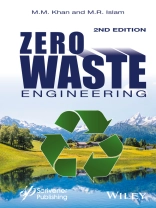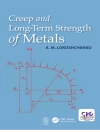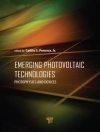Is 'zero waste engineering’ possible?
This book outlines how to achieve zero waste engineering, following natural pathways that are truly sustainable. Using methods that have been developed in various areas for sustainability purposes, such as new mathematical models, recyclable material selection, and renewable energy, the authors probe the principles of zero waste engineering and how it can be applied to construction, energy production, and many other areas of engineering.
This groundbreaking new volume:
* Explores new scientific principles on which sustainability and zero waste engineering can be based
* Presents new models for energy efficiency, cooling processes, and natural chemical and material selection in industrial applications and business
* Explains how 'green buildings’ and 'green homes’ can be efficiently built and operated with zero waste
* Offers case histories and successful experiments in sustainability and zero-waste engineering
Ideal for:
Engineers and scientists of all industries, including the energy industry, construction, the process industries, and manufacturing. Chemical engineers, mechanical engineers, electrical engineers, petroleum engineers, process engineers, civil engineers, and many other types of engineers would all benefit from reading this exciting new volume.
O autorze
M. M. Khan was recently a lecturer in chemical engineering at the Bangladesh University of Engineering and Technology, before moving to Canada. He has written a dozen papers and coauthored a book on zero waste engineering and sustainable technology.
M. R. Islam is Professor of Petroleum Engineering at the Civil and Resource Engineering Department of Dalhousie University, Canada. He has over 700 publications to his credit, including 6 books. He is on the editorial boards of several scholarly journals. In addition to his teaching duties, he is also director of Emertec Research and Development Ltd. and has been on the boards of a number of companies in North America and overseas.












